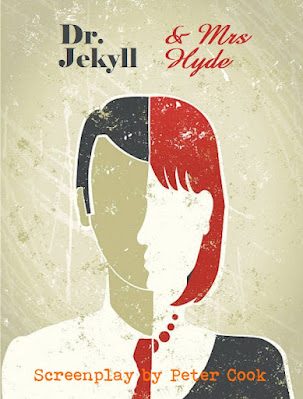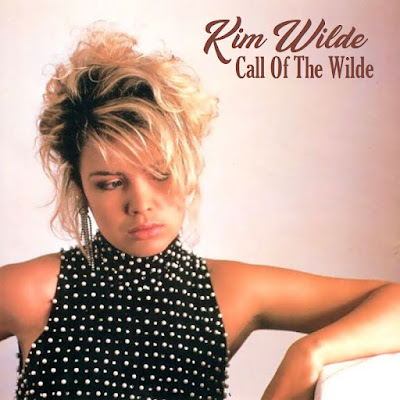Ronald David Wood was born on 1 June 1947 in Hillingdon, London, and made his first appearances on record during the mid-'60s, firstly as guitarist for the Birds, who were an R&B band based in Yiewsley, Middlesex. They were a popular live act with a considerable fan base, releasing several singles in the mid-1960's, and Wood wrote or co-wrote nearly half the songs that the group recorded. By 1967 the Birds had disbanded, and Wood briefly took part in a project called Santa Barbara Machine Head, which included later Deep Purple co-founder Jon Lord (did he file that name away for later use?), before becoming a member of the oft-overlooked mod outfit The Creation, remaining with them for a short while, and appearing on a handful of their singles. After he left The Creation in 1967 he joined the Jeff Beck Group, but as Beck was one of the leading guitarists of the time, Wood switched to bass while with the band, and they recorded two highly respected albums, with 'Truth' appearing in 1968, and 'Beck-Ola' following the next year. Following the release of 'Beck-Ola', the Jeff Beck Group disbanded, with vocalist Rod Stewart embarking on a solo career, and after Steve Marriott left the Small Faces, Wood began working with the remaining members of that group, returning to his instrument of choice, the guitar. This line-up, plus Rod Stewart and former Bird Kim Gardner, teamed up with Wood's brother Art Wood in a group that they called Quiet Melon, and they made a handful of recordings in May 1969. When Quiet Melon folded, Wood and Stewart joined the former Small Faces full-time, changing the band's name to The Faces, and it was most of this band, with the addition of Keith Emerson on keyboards, and Steamhammer's Martin Pugh and Martin Quittenton, that backed Stewart on his first solo album 'An Old Raincoat Won't Ever Let You Down' in 1969.
In the first half of the 1970's, The Faces released four studio albums and were among the top-grossing live acts of the period, and as well as his distinctive guitar work, Wood contributed harmonica, vocals and bass to the band's recordings, and co-wrote many of their songs. In 1972, Wood and Faces bassist Ronnie Lane composed the soundtrack to the film 'Mahoney's Last Stand' with help from Pete Townshend, Ric Grech and Kenney Jones, but the soundtrack album didn't appear until four years later in 1976. In 1973 Wood asked his old friend Mick Taylor to help out with his first solo album, and later that year he collaborated with Mick Jagger on the song 'It's Only Rock'n Roll (But I Like It)', as well as joining David Bowie to record a cover of Bruce Springsteen's 'Growing Up' during sessions for his 'Diamond Dogs' album. When Taylor departed from the Rolling Stones in December 1974, Wood helped out with the band's March 1975 recording sessions for their forthcoming album 'Black And Blue', and although still a member of Faces, he toured North America with The Rolling Stones in 1975. When The Faces announced their break-up in December of that year, Wood was officially declared a member of The Rolling Stones in 1976, playing slide guitar, as Taylor and Brian Jones had done before him, and adding both lap steel and pedal steel guitar to his repertoire. In addition, he often exchanged roles on the guitar with Keith Richards, blurring the boundaries between rhythm and lead, even within a particular song. In 1975, Wood released his second solo album 'Now Look', followed four years later by 'Gimme Some Neck', and to promote it he formed and toured with The New Barbarians, playing 20 concerts in Canada and the US. Throughout the 1980's Wood kept very busy, playing as an official member of The Rolling Stones, continuing his solo career, painting, and collaborating with a number of other artists, including Prince, Bob Dylan, David Bowie, Eric Clapton, Bo Diddley, Ringo Starr and Aretha Franklin. Wood's first guest appearance was actually on Donovan's 'Barabajagal' single, where The Jeff Beck Group acted as his backing band, but as Wood was playing bass and not guitar I'm starting this collection with his appearance on Rod Stewart's 1970 album, and working through his contributions to other artists efforts through to the late 80's, and for the cover I've used a rare self-portrait painted by Wood himself.
Track listing
Disc One
01 Only A Hobo (from 'Gasoline Alley' by Rod Stewart 1970)
02 I'm Ready (from 'It Ain't Easy' by John Baldry 1971)
03 Stop On The Red (from 'Wun' by Gerry Lockran 1972)04 Just For A Moment (from the soundtrack of the film 'Mahoney's Last Stand' 1972)
05 Brahms (from 'The Academy In Peril' by John Cale 1972)
06 Fallen Angel (from 'On The Road To Freedom' by Alvin Lee & Mylon LeFevre 1973)
07 Growin' Up (out-take from 'Pin Ups' by David Bowie 1973)
08 Kew (from 'Love Songs' by Billy Nicholls 1974)
09 Shut Up (from 'First Of The Big Bands' by Tony Ashton & John Lord 1974)
10 Ding Dong, Ding Dong (from 'Dark Horse' by George Harrison 1974)
11 Feet (from 'Stone Alone' by Bill Wyman 1976)
12 Kinky (from 'Lasso From El Paso' by Kinky Friedman 1976)
Disc Two
01 All Our Past Times (from 'No Reason To Cry' by Eric Clapton 1976)
02 What A Town (from 'Rick Danko' by Rick Danko 1977)
03 Slow Screw Against The Wall/A♭ Fry (from 'Ask Rufus' by Rufus feat. Chaka Khan 1977)
04 Nobody's Child (from 'Puttin' On The Style' by Lonnie Donegan 1978)
05 Jumpin' Jack Flash (from 'Aretha' by Aretha Franklin 1980)
06 Little Girl (from 'Bump In The Night' Ian McLagan 1981)
07 Dead Giveaway (from 'Stop And Smell The Roses' by Ringo Starr 1981)
08 Clean Cut Kid (from 'Empire Burlesque' by Bob Dylan 1985)
09 Go 'Way Little Boy (b-side of 'Sweet Sweet Baby' single by Lone Justice 1985)
10 Love Roulette (from 'Heartbeat' by Don Johnson 1986)
11 Baby (from 'Dirty Strangers' by Dirty Strangers 1987)
12 The Usual (from the soundtrack of the film 'Hearts Of Fire' 1987)
Thanks to Gil for the suggestion





















